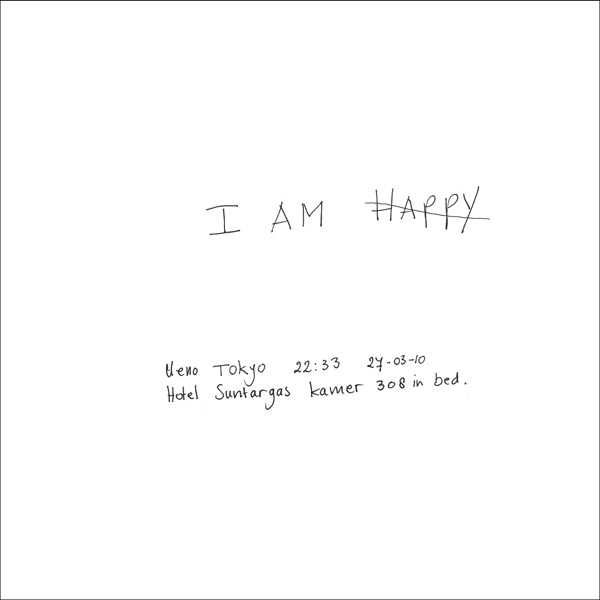{LMC}: My Brain on Beecher’s

Beecher’s has been hanging out in my living room for a while. I read it. Summary, or “my brain on Beecher’s”:
{LMC}: A Marvel of Words

The most incredible thing about Beecher’s Magazine has already been commented on by many, but I will say it again: the thing is gorgeous. Each page is made of elegant, thick paper I don’t know how to classify except to say it’s the kind of paper on which you would print your resumé. The binding is exposed, with black string hanging off its sides and glued down in place. Then there is the cover: on an open expanse of white there is nothing but the letter “b,” its stem shaped like a rifle, with a small red “1” just above it. The “1” refers to the issue, which is Beecher’s first-ever. With this beautiful design, we are off to a good start.
The opening story is Alec Niedenthal’s “Sailing.” I have no idea what this story is about. What are we to make of lines like, “During the day I will make Roger play like he is me and I will play like I am Roger so that Roger, the barbarous queller of my passion, can finally and for the very first time bestow his suffering on me…”? Or, “Then I will have Ralph, I mean Roger, I will have Roger and Dog during the day to take care of, until father comes home and I am his pale sacrifice on the floor.”
{LMC}: January’s Selection: Versal 9
In January 2012, we will be reading Versal 9, a literary journal out of Amsterdam. The editors of Versal have been kind enough to offer ten four two one remaining free copies of the magazine and a discount for those who buy the magazine. If you’re interested in a free copy, e-mail me with your name and address.
The sale price for LMC members is $10 instead of the usual $14.95. You can buy the issue here.
Versal is a literary & art annual out of Amsterdam, the Netherlands.
Versal was founded in 2002 by American poet Megan M. Garr to help foster the translocal literary community in Amsterdam. In 2010, Versal was named one of seventeen “Indie Innovator” presses by Poets & Writers Magazine, which called it “the most visible product of a passionate group helping to sustain ‘transnational networks’ for writers.”
Community, wide-reaching aesthetic and bold design have been at the core of the Versal project from the outset. Today, Versal is built by a volunteer team of nearly 20 writers and artists around the globe. The team is currently working towards Versal’s 10-year anniversary, which will be marked by the release of the tenth issue in May 2012.
[LMC}: A Way to Feel About Joshua Cohen’s Writing (You Can’t)
I read the massive whole of Joshua Cohen’s WITZ thinking, “I can’t finish this” and I did and it didn’t finish me, though I thought it might and I came out of it with some collateral damage. A book can’t finish you. The intention of WITZ was an end to Jewish kitsch, and you can’t know if that end was achieved, though Mr. Cohen flattened every stereotype with his hammer prose until all the Catskills punch lines were burned away at the end of that tortuous final passage, issuing to the air like crematory smoke and now, you can’t make those jokes anymore. So maybe he did it. Phillip Roth, king of Jewish kitsch, writes about polio and geezer sex fantasies now. Who knows what Woody Allen is up to.
I read a paragraph of his in the Paris Review, a lyrical wonder about German art students on bicycles and thought and still think, “You can’t write a better paragraph than that,” and so far, nobody has.
{LMC}: A Conversation with Robert J. Baumann and Iris Moulton
We have a pair of interviews with the editors of Beecher’s. First up, Gene Kwak talks with Robert J. Baumann and Iris Moulton. Next week, Roxane talks with Chloe Cooper Jones, Ben Pfeiffer, and Daniel Rolf.
—
Beecher’s One is a beautiful, gun-covered thing. A good gander will give you an eyeful of clean living and slick word wizardry. You get the sense that the editors want to wrap readers in a thick-knit blanket of play. I had some questions for my own pondering and figured the LMC was as good a reason as any to poke a stick at a thing. How often do you get to ask editors to flash their thought bubbles? Equally, I wondered about future space and word games and figured maybe they’d shed light on issues two and beyond. I had some high hopes of my own (in short, that going forward they include a few longer fiction pieces and mix in some non-fiction), but I hesitate to say anything as it’s issue one and give people a break, yunno? Here’s the dig between two fine poetry editors, Iris Moulton (former Asst. Poetry Editor, now Beecher’s co-Editor-in-Chief) and Robert J. Baumann (former Poetry Editor, now a bookslinger at the renowned Woodland Pattern). They were entirely too gracious.
{LMC}: The Multiplying Self
Sometimes we want to dance, even those of us who say we don’t like to. Colin Winnette’s narrator meditates upon this desire, but only for a moment. The narrator exists in fragments, and the part of him that wanted to dance, named “An Evasive Aspect of My Personality,” is denied the pleasure of turning and moving to music, denied this approximate transcendence. In certain moments, different aspects of the narrator take precedence. We are a sum of our parts, but it doesn’t mean the parts have to work together.
Personalities are shaped in fiction by the discourse. We say, “This narrator is unreliable.” “This narrator is sympathetic.” “This narrator shows what it’s like to live in a war torn country and how to go beyond nationalism.” However, even these moves are not transparent inside of fiction. Characters are led by their authors to decisions that lead us to judge them. Dialogue helps characters reveal themselves to us, we get exposition, or free indirect discourse moves a reader along inside a character’s head, trailing his or her thoughts.
{LMC}: Hug Beecher’s One Before Bed and It Hugs Back

Beecher’s One has an effect on me, and not just because of the wonderful stories. More than any other journal I have read, holding it evoked an emotion, much like the words did. When nobody was looking, I may have rubbed the journal all over my face, took deep breaths over its pages and whispered secrets into its binding, which I have learned is called a “naked” binding. How sexy.
Daniel Rolf is responsible for my affection for the design. He said the original concept for the binding was to make the first issue a “simple container for the text, but also something interesting to hold and look at.” Well, he surpassed that goal by quite a bit.
Beecher’s and the Game Narrative
Perhaps it is a reaction to the interactive time we live in—where video games and the Internet create portals to different worlds, where we control the x,y,z—but Beecher’s, in its inaugural issue, has curated, whether they are aware of it or not, a small collection of fiction and poetry that exist in two places: a realm of narrative and that of the participatory game.
The first, striking example of the journal’s interactive nature is the design. That point may seem self evident—you interact with the journal as you would with any other book—but there is something more to Beecher’s. The pages are porous. They absorb dirt, fingerprints, and oil. The binding is loose. When it is in your grasp, you are handling something precious, an antiquity. A person like myself, who believes in the preservation of items, finds that holding the journal, attempting not to damage it, is a thoroughly conscious process.
The journal being physical as opposed to electronic means you can’t click links in Beecher’s as you would in a hyper-text journal. The writing has to works harder to to encourage reader interaction. Here is where the journal begins to push real boundaries.
In Rebecca Wadlinger’s poem, “Mrs. Mayfield and the Museum of Bodies,” the narrator touches statues and paintings in an unnamed museum under the suspicious gaze of a security guard. When the guard blinks, the narrator/poet sneaks a touch. The guard, by the end of the poem, is so worn down by the narrator’s persistence that he allows her to interact with the art, finally, as she truly desires.
Cohen’s “The Rules (Gulf Version),” is a set of game rules which informs the reader that any number of people may participate in the game/narrative, as long as they are human like you and me. But, for practical purposes, the participants in the game must “exceed one”, drawing the reader into the “game.” During my interaction with the story, I was forced to wonder whether I was playing a game with the author, or with the characters of the story. Either way, a dead body became a heavy load at the end of the story, requiring redemption and resuscitation that only I, as the reader and participant in the game, could supply. READ MORE >
{LMC}: Yelena Akhtiorskaya in Beecher’s #1
The editors of Beecher’s #1 should be applauded for picking fiction and poetry that are all remarkably consistent in structure and tone. This issue of Beecher’s values images over plot in the traditional sense. The pieces are usually quite short and aim to evoke a mood through the use of exquisite, concise, and deliberate writing. Basically, if you’re looking for sensitive stories about sad people in the suburbs having affairs, or speculative romps through alien lands, then this ain’t the journal for you.
The writing in Beecher’s is almost uniformly great and most of the pieces succeed at their goals. But this consistency could, somehow, work against the journal in the long run. I couldn’t read more than two or three entries in one sitting, and they’re short (most of the fiction is a page or two), because it all started to sound a little too much alike. The pieces are so similar to each other that I kept forgetting who the authors were. At times I’d think that I had already read a story, but then realize I was confusing it with another piece with a similar tone and feeling. For example, the lists and repetition in Joshua Cohen’s story, “The Rules (Gulf Version)” is very similar to the lists and repetition in Colin Winnette’s “Playing with Myself: A Series”—even the titles sound the same. John Dermot Woods’s flash fiction, featuring unique characters in unique, unsettling situations, is pretty similar to Alexis Orgera’s prose poems, which feature unique characters in unique, unsettling situations.
This observation isn’t meant to take anything away from the separate pieces. Orgera’s poems are some of the strongest in the journal, and Cohen is as dazzling as always. Perhaps this is a larger debate. Is it possible for a journal to be too consistent? When does a sustained effect move from intriguing to repetitive?
{LMC}: I Want to Be The Girl With the Most Cake

Beecher’s, Issue Number One, Interview w/ Stephen Elliott:
Q: What do you think most people like about your writing?
A: I think people connect with the struggle for honesty.
November 4th, 2011 / 1:00 pm






